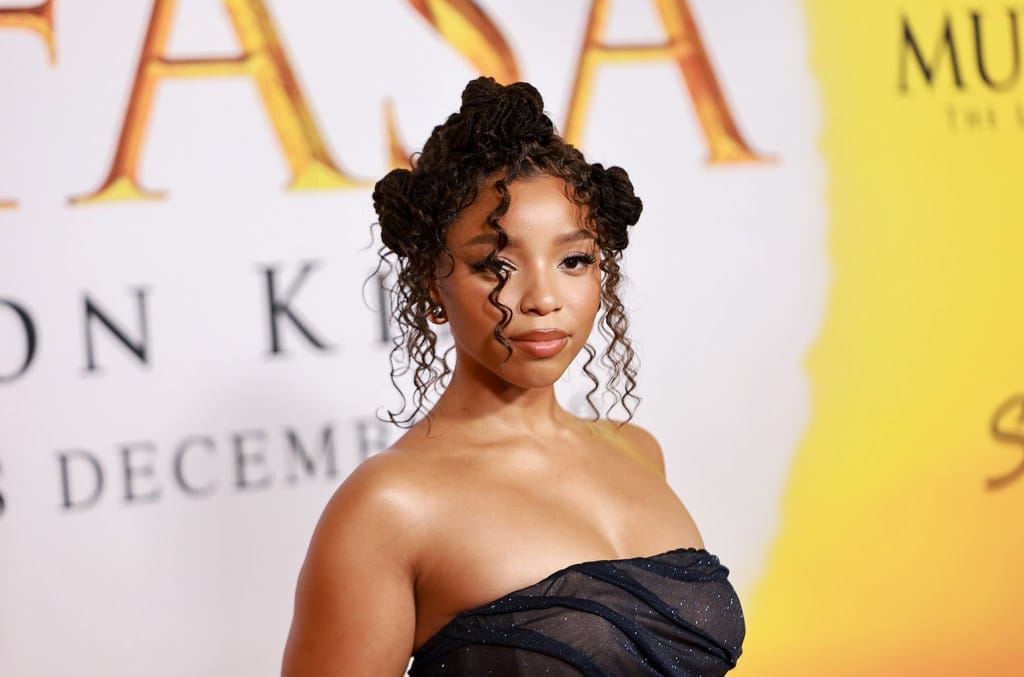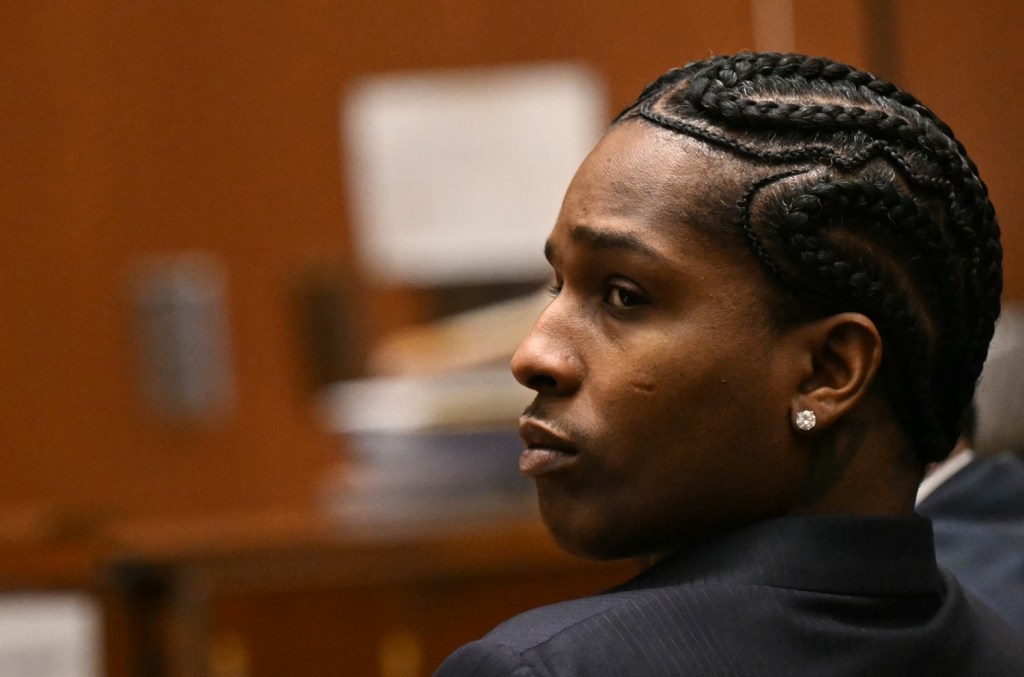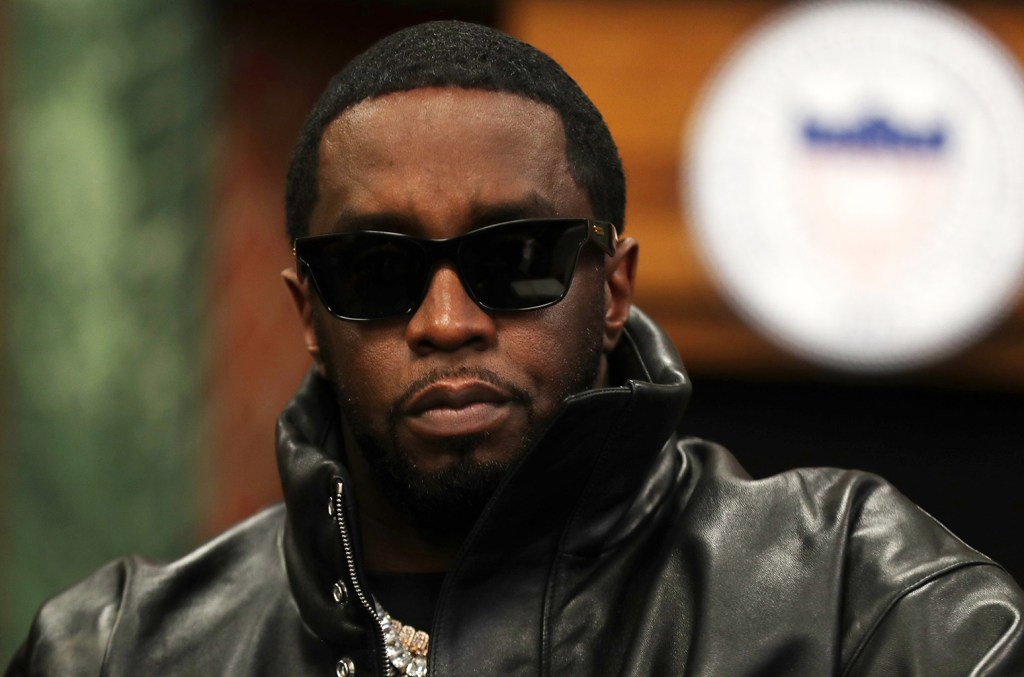Legal
Page: 32
A U.S. federal court judge has ruled that Ultra Music Publishing must change its name within six months after a jury found that the company breached the “Ultra” trademark owned by the Sony Music-owned Ultra Records.
Ultra Music Publishing is owned by Patrick Moxey, who also founded Ultra Records in 1995 and sold his remaining 50% share of the label to Sony Music in 2021. Sony brought the lawsuit against Ultra Music Publishing the following year, attesting that Moxey (who founded the publishing company in 2004) had signed away his rights to the trademark after selling his stake in the Ultra label.
At the December trial, lawyers for Sony/Ultra Records argued that the label had impliedly licensed the Ultra trademark to the publishing company but that, after terminating that license in March 2022, the publishing company had continued to use the trademark in bad faith. The jury in the case agreed, also finding that the Ultra mark was distinctive, that Ultra Music Publishing was in breach of the license and that its use of the Ultra name was “likely to dilute [Ultra] Records’ Ultra trademark.”
However, the jury also found that Ultra Music Publishing’s use of the trademark wasn’t “likely to cause confusion among [Ultra Music] Publishing’s customers, and that [Ultra] Records suffered nodamage from Publishing’s breach of the license.” As a result, the jury awarded no damages or legal costs to Sony/Ultra Records.
“Independent music companies are always facing challenges from major corporations, who are threatened more than ever by their increasing success,” said Moxey in a statement sent to Billboard following Tuesday’s ruling. “With 13 songwriters nominated across seven categories at this year’s Grammys, and their participation in winning Album of the Year, R&B Album of the Year, and Rap Album of the Year, we are proud of the many successes of the songwriters we represent. Our roster of talented writers and producers, alongside our executive team will keep doing what they do best — delivering the exceptional work that has made us who we are. Nothing changes except the name.”
Sony Music declined to comment on the ruling.
Though the trademark case is now resolved, the legal battle between Sony Music and the publisher isn’t over. Last November, Moxey’s Ultra International Music Publishing and Ultra Music Publishing Europe sued Sony Music Entertainment and its subsidiaries — including Ultra Records — over allegations of copyright infringement, claiming Sony and its affiliates had been using Ultra Publishing’s compositions without a license. Last week, Sony Music Entertainment asked a judge to throw out that lawsuit, calling the complaint an act of “retaliation” against the major label for filing its trademark suit against the publishing outfit two years prior. That case is ongoing.
Just over a week after A$AP Rocky (born Rakim Mayers) was found not guilty on all counts in his 2021 felony shooting case, A$AP Relli (born Terell Ephron) is moving forward with his civil lawsuit against the A$AP Mob frontman.
On Wednesday (Feb. 26), Los Angeles County Superior Court Judge William Fahey lifted a hold on Relli’s assault and battery case against Rocky and set a trial date of Jan. 12, 2026, according to Rolling Stone.
Relli’s lawyer, Melisa Mikhail, reportedly appeared virtually at the hearing and said that her client had no plans of dropping the lawsuit while citing the lower burden of proof in a civil versus criminal court.
Trending on Billboard
“We intend to continue litigating this case,” Mikail said. “The standard in a criminal case is much higher than the preponderance of the evidence standard in a civil matter. We still believe that our claims have merit, and we intend on fully litigating them.”
During the hearing, Rocky’s civil attorney James Sargent reportedly argued that “there’s no longer a basis” for the case. “Mr. Ephron testified in the criminal case as to the facts and circumstances,” Sargent said. “The jury’s acquittal speaks volumes as to how they valued that testimonial evidence.”
The next hearing in the civil lawsuit — which was originally filed in 2022 — is scheduled for May 28. Billboard has reached out to attorneys for both Relli and Rocky for comment.
In both the criminal and civil cases, Rocky is accused of firing a weapon at Relli following a heated confrontation near a Hollywood hotel on Nov. 6, 2021. In the criminal trial, Relli maintained that he was grazed by gunfire, but Tacopina argued that the weapon was in fact a prop gun filled with blanks.
Rocky, who had faced two felony counts of assault with a firearm and a maximum of 24 years in prison in the criminal case, was acquitted by a jury on Feb. 18. Upon the reading of the verdict, the Harlem rapper embraced his attorney and then dove into the gallery to celebrate with his partner, Rihanna. The rapper had earlier turned down a final plea deal ahead of trial that would have resulted in a 180-day jail sentence.
BigXthaPlug (born Xavier Landum) has been arrested on a possession of marijuana charge in Arlington, Texas. The Arlington Police Department tells Billboard BigX was booked into Arlington City Jail early Wednesday (Feb. 26) following a traffic stop shortly after midnight, and was charged with possession of less than two ounces of marijuana. An Arlington Police […]
A Missouri woman has pleaded guilty to mail fraud for her role in an alleged scam to steal the Elvis Presley family’s ownership interest in the famed Graceland mansion. Lisa Jeanine Findley, who has gone by various aliases including Lisa Holden and Lisa Howell, initially pleaded not guilty to mail fraud and aggravated identity theft […]
Los Angeles rapper Lefty Gunplay (born Franklin Holladay) was arrested on controlled and prohibited substance charges in El Paso, Texas, over the weekend.
Per jail records viewed by Billboard, the alleged offense happened on Sunday (Feb. 23) and he was booked into El Paso’s Downtown Jail the following day on charges of possession of a controlled substance, possession of a prohibited substance in a correctional or civil facility and not wearing a seatbelt.
Explore
Explore
See latest videos, charts and news
See latest videos, charts and news
The rapper, who collaborated on Kendrick Lamar’s “TV Off,” was released Monday after posting a $35,000 bond and paying the $184 fee in cash for the seatbelt violation.
According to local news affiliate CBS 4, Holladay was in El Paso for an appearance at the Chuco Brunch event, which he never made it to. The outlet also shared video footage of what appears to be the artist in handcuffs while being escorted around a medical facility by a police officer.
Billboard has reached out to the El Paso Police Department and reps for Lefty Gunplay for comment.
Holladay apologized to his fans during an interview with Power 102.1 FM’s Patti Diaz, and promised to make it up to those he disappointed.
“Later on, I’ll get into further details of what really happened. If you know, you know, but I feel like I got to make it up to my El Paso fans. You know I got a lot of fans in Texas and things didn’t work out the way they were supposed to,” he said during the chat.
Holladay continued: “At the end of the day, everything happens for a reason and I love Texas. They gotta come see me in California if they really wanna see me. Things ain’t matching up right when I make an attempt.”
Lefty Gunplay emerged onto the mainstream rap scene in November with his guest appearance on Lamar’s GNX standout “TV Off.” The Mustard-produced hit sits at No. 4 on this week’s Billboard Hot 100.
Listen to a clip of Lefty Gunplay on Power 102.1 FM below:
Megan Thee Stallion (Megan Pete) and her legal team have been granted permission to depose Tory Lanez (Daystar Peterson) behind bars following a ruling by a federal judge on Monday (Feb. 24). “Plaintiff may take the oral deposition of Daystar Peterson, either remotely via videoconference technology or as otherwise arranged upon agreement with the California […]
Gossip blogger Tasha K has agreed in bankruptcy court to pay Cardi B more than $1 million over the next five years and to not make any “derogatory, disparaging, or defamatory statements” about the superstar.
In court filings Friday (Feb. 21), attorneys for Tasha (Latasha Kebe) offered a plan to resolve her years-long federal bankruptcy case — proceedings made necessary by a $3.9 million judgment for defaming Cardi with outlandish claims of drug use, STDs and prostitution.
The new plan will cover only $1.2 million — less than a third of that fine. But under the terms of the agreement, Tasha will still owe the rest of the damages award even after she finishes the repayment plan: “The Almanzar Claim is non-dischargeable.”
Trending on Billboard
In the first year of the agreement, known as a “plan of reorganization,” Tasha will pay $44,907 per quarter to her unsecured creditors, the vast majority of which will go to Cardi. By year five, those quarterly payments will escalate to $81,057.
In an unusual feature, the bankruptcy plan also includes a non-disparagement clause, barring Tasha not only from defaming Cardi while the plan is in place but also from even mentioning her or any of her family members.
“The Debtor shall ensure that no content related to Ms. Almánzar and/or her family, whether explicitly or implicitly, will be published or disseminated on any of the Debtor’s social media accounts, websites, blogs, or other online communication channels,” her lawyers wrote.
Attorneys for both sides did not immediately return requests for comment.
The filing is the latest wrangling in Cardi’s long-running efforts to collect on the huge 2022 judgment, which came after a federal jury found that Tasha had made false and defamatory statements about the superstar on YouTube and other platforms.
Cardi has repeatedly vowed to recover that money by any means necessary — saying “imma come for everything” and “b—- better have my money.” Tasha filed for Chapter 11 bankruptcy in 2023, saying she still owed $3.4 million to Cardi and had less than $60,000 in assets. But the rapper has pursued her, later winning a ruling that Tasha couldn’t use the bankruptcy process to “discharge” the judgment.
In December, Cardi’s attorneys demanded that the bankruptcy case be dismissed entirely, accusing Tasha of orchestrating a “long-running fraudulent scheme to shield debtor’s assets and income from creditors.” They said she had fraudulently transferred and concealed money and had lied to both Cardi and the federal courts.
“It is clear and irrefutable that debtor has admittedly and repeatedly engaged in bad faith conduct to hinder, delay, and defraud Ms. Almánzar from collecting on the amended defamation judgement,” the star’s lawyers wrote. “This court should not allow debtor to further abuse the bankruptcy process.”
A day after Cardi filed her motion to dismiss, the court-appointed trustee — a neutral third party who helps shepherd a bankruptcy case toward a repayment plan — filed her own motion endorsing Cardi’s arguments and urging the judge to dismiss Tasha’s bankruptcy case.
The threat of such an outcome likely forced Tasha’s attorneys to negotiate Friday’s agreement, avoiding the risk that the bankruptcy would be dismissed entirely.
Jennifer Lopez and Ben Affleck are officially divorced and legally single.
As of Friday (Feb. 21), the Los Angeles County Superior Court finalized the dissolution of their marriage, confirming their legal single status, according to Associated Press. The couple reached a divorce settlement on Jan. 6.
Court documents revealed that Lopez, 55, and Affleck, 52, settled through mediation in September, successfully avoiding the lengthy court battles that have plagued other high-profile celebrity divorces.
Lopez and Affleck first began dating in 2002 after meeting on the set of Gigli. They got engaged but called off their wedding in 2004. Nearly two decades later, they rekindled their romance in 2021 and tied the knot in a Georgia ceremony the following year.
Trending on Billboard
“I never thought that he and I would get back together,” Lopez told Billboard in February 2024, ahead of the release of her film This Is Me… Now: A Love Story, which chronicled their rekindled relationship. “I just couldn’t give up on the idea that there was something amazing out there for me, even when it got really bad — and it did at times. I always believed deep, deep down to not give up completely.”
The singer and actress filed for divorce from Affleck about two years after their Georgia wedding, listing their separation date as April 26, 2024. In her initial filing, she cited “irreconcilable differences” as the reason for their split.
According to settlement documents obtained by Billboard, the pair agreed on terms to divide their properties and assets. Both waived spousal support and agreed to equally split the legal fees of their negotiation, which was mediated by Laura Wasser. Lopez will also change her legal name back from Jennifer Affleck to Jennifer Lopez.
Lopez was previously married to Ojani Noa, Cris Judd, and Marc Anthony, with whom she shares two children. Affleck was previously married to Jennifer Garner, with whom he shares three children.
In October 2024, Lopez reflected on her feelings about being single again following her split from Affleck.
“I think to myself, ‘F—, that is exactly what I needed,’” she told Interview. “Thank you, God. I’m sorry it took me so long. I’m sorry that you had to do this to me so many times. I should have learned it two or three times ago. I get it … I’m not looking for anybody, because everything that I’ve done over the past 25, 30 years, being in these different challenging situations, what can I f—ing do when it’s just me flying on my own … What if I’m just free?”

R&B star Chloe Bailey (performing as Chlöe) has been accused of failing to properly credit and pay a songwriter who worked on her album Trouble in Paradise and of commercially releasing the songs he wrote without his consent, according to court documents filed in the Southern District of New York on Thursday (Feb. 20).
In the lawsuit, filed by attorney Tyrone Blackburn, songwriter Melvin “4rest” Moore alleges that the actions of Bailey, along with her label Parkwood Entertainment and Columbia Records, constitute “copyright infringement, fraudulent misrepresentation, violations of the Digital Millennium Copyright Act (DMCA), civil conspiracy and deceptive business practices.”
According to the complaint, Bailey “fail[ed] to appropriately credit or compensate” Moore in connection with the songs he worked on for Trouble in Paradise — “Favorite,” “Might As Well” and “Same Lingerie” — which Moore says were written about his own “personal and…lived experiences.” It also claims that Moore “did not grant consent to the commercial exploitation of the [songs]” he wrote for Bailey and that he did not get an opportunity to “engage in good-faith negotiations” with Bailey’s team around contractual terms, citing an email from Moore’s attorney to Bailey’s counsel on Aug. 8, 2024.
Trending on Billboard
(Records from ASCAP and BMI’s Songview repertory, which contain official accounts about which writers and publishers worked on a given song, indicate that Moore is listed as a writer for “Same Lingerie” and “Might As Well” but not for “Favorite.”)
The lawsuit calls Bailey, Parkwood and Columbia “modern-day swindlers” and claims that Moore’s attorney “repeatedly made good-faith attempts to amicably resolve the matter of [Bailey, Parkwood and Columbia’s] unauthorized commercial exploitation of the works” over the course of “almost 200 days.”
After not being able to reach an agreement, Moore’s attorney says he issued a DMCA takedown notice, asking for the songs Moore worked on to be removed from the internet. The complaint adds that Moore’s team feels their takedown was “willfully and blatantly ignored.”
Moore is asking for monetary damages up to $150,000 for each intentional violation; a court order to stop further commercial use of the songs; a complete investigation of Bailey, Parkwood and Columbia’s revenue from unauthorized use of the songs; repayment of all profits gained from the songs; a requirement for defendants to publicly retract their claims and properly credit Moore; punitive damages of $5 million per song; and any additional relief the court finds appropriate.
Representatives for Bailey, Parkwood and Columbia Records did not respond to Billboard‘s requests for comment by press time.
One of Sean “Diddy” Combs’ attorneys has filed a motion to step down from representing the incarcerated hip-hop mogul. Per court documents filed in the Southern District of New York on Friday (Feb. 21), Anthony Ricco said that while he had “provided Sean Combs with the high level of legal representation expected by the court, […]

 State Champ Radio
State Champ Radio 







